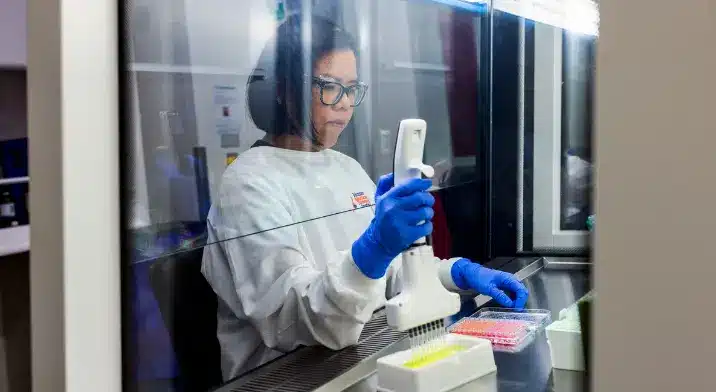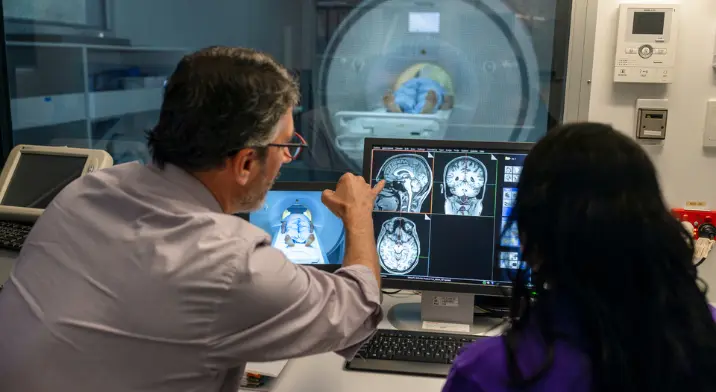Dr Dylan Kiltschewskij is an early career postdoctoral research fellow currently based within the HMRI Precision Medicine Research Program.
Dr Kiltschewskij completed his PhD at The University of Newcastle in 2020, where he investigated the functional role of small non-coding RNAs in neuronal cells using RNA sequencing.
Dylan’s research specifically explored how short, non-coding microRNAs control mRNA expression and translation during neuronal differentiation and excitation, to better under understand how dysregulation of microRNAs in psychiatric illness alters neuronal properties.
Dylan has since transitioned to statistical genetics, with a view of elucidating genetic and epigenetic contributions to psychiatric conditions that can be leveraged for precision medicine. Using bioinformatic and statistical analyses, Dr Kiltschewskij has most recently identified patterns of DNA methylation associated with measures of progression and severity in schizophrenia that may contribute to patient-to-patient heterogeneity.
He has continued this work by conducting the largest epigenome-wide association study of variable DNA methylation in schizophrenia to date, identifying genomic regions within important neuronal genes that exhibit high variability from individual-to-individual.
Dr Kiltschewskij also researches the relationship between blood biomarkers (such as lipids, metabolites, vitamins and blood cells) and psychiatric illness using large genetic studies. Specifically, he has identified causal relationships between circulating biomarkers, region-specific anatomy of the brain and psychiatric disorders using genetic variants that are common in the general population. Dr Kiltschewskij hopes to leverage these signals in future studies to guide personalised interventions in schizophrenia using an individual’s unique (epi)genetic profile.













